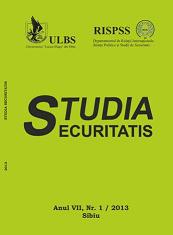IDEATIONAL CODING OF THE ENEMY: THE CASE OF SERBIA
IDEATIONAL CODING OF THE ENEMY: THE CASE OF SERBIA
Author(s): Ljubiša Despotović, Đorđe S. Stojanović, Živojin B. ĐurićSubject(s): Politics / Political Sciences
Published by: Editura Universitatii LUCIAN BLAGA din Sibiu
Keywords: Enemy; identity; national conflicts; constructivism; Serbia; Carl Schmitt
Summary/Abstract: The first part of the article focuses on the most important theoretical attributes of Carl Schmitt’s “ontic“ friend-enemy distinction for the formulation of the international system and compares his „realistic“ exclusion-based view of identity with the constructivist inclusion-based view of identity. In the second part, the article problematize phenomenon of enmity as one of the most important issues for the consolidation of inter-ethnic relations in the external and internal functioning of independent countries that emerged from the breakup of Yugoslavia. In this context, we can see significant change in the content of Serbian post-war enemy coding: public status of radical regional (mortal) foe is replaced by the public status of normal regional enemy, the category of „evil foe“ with the category of “dangerous enemy”. This shift increases the degree of democratization and stability of the entire region.
Journal: Studia Securitatis
- Issue Year: 2013
- Issue No: 1
- Page Range: 7-17
- Page Count: 11
- Language: English
- Content File-PDF

